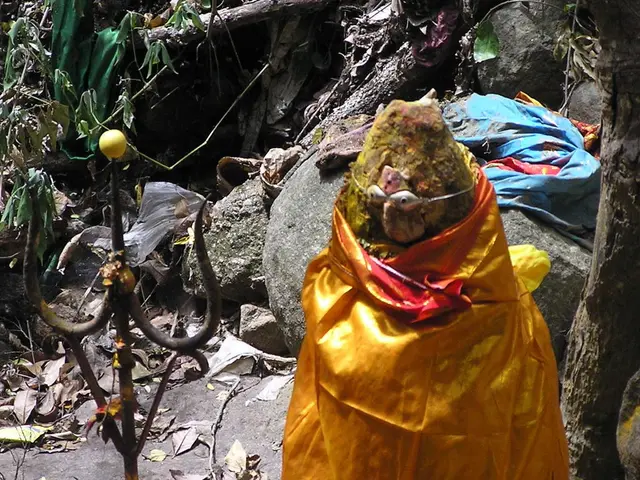Can the common cold resolve naturally? Insights provided
The common cold is a familiar foe, often causing sneezing, runny nose, coughing, and other nuisance symptoms. However, it's essential to understand that while the cold typically resolves on its own within a week, there are potential complications, especially for certain groups.
In most cases, after 2-3 days, some symptoms may start to show signs of improvement. Mucus in the nose may change from clear to yellow, white, or green, but this is not necessarily a cause for concern. However, it's important to remember that the worst of a cold is typically over within 7 days, but it can take longer for some symptoms to go away completely.
Unfortunately, complications can arise, particularly in preschool children and individuals with compromised immune systems. Common complications include sinus infections (sinusitis), pneumonia, and ear infections. These complications occur because the initial viral infection can lead to secondary bacterial infections or exacerbate underlying respiratory conditions.
Sinusitis and ear infections are common following a cold due to inflammation and mucus buildup that can block normal drainage pathways, creating a site for bacterial growth. Pneumonia, a more serious lung infection, can develop if the viral infection spreads to the lower respiratory tract. This is a higher risk in those with weakened immune defenses or pre-existing lung diseases.
Post-infectious cough can linger for weeks after the cold symptoms resolve, often caused by irritation or post-nasal drip. Preschool children are more vulnerable to complications because their immune systems are still developing, and they may experience high fevers or difficulties such as fast or troubled breathing, bluish lips or face, dehydration, or seizures, all of which warrant urgent medical attention.
Individuals with compromised immune systems or chronic respiratory conditions may progress from a simple cold to secondary infections like bronchitis or pneumonia more easily and should be monitored closely for worsening symptoms.
It's crucial to note that the list provided is not exhaustive, and if someone has any concerning symptoms, they should speak with a doctor. Symptoms that warrant medical attention include difficulty breathing, rapid breathing, a fever that lingers, symptoms that get better and then return or worsen, dehydration, symptoms that linger longer than 10 days without improving, a long-term medical condition that has gotten worse, or any concerning symptoms.
A reduction in symptoms means a cold is starting to go away. A person may feel less congested, no longer have a sore throat, or feel less tired. Another sign the cold may be going away is if a person feels like resuming their usual activities or no longer notices their symptoms.
In general, it's essential to remember that colds do not have distinct stages, and the symptoms and progression of cold symptoms can vary. The recommends that all children under age 5, all adults over 65, and those with certain risk factors for pneumonia receive a vaccination to help prevent complications.
Lastly, it's important to note that influenza (flu), mononucleosis, and COVID-19 are other possible causes for what appears to be a severe cold, as they can have similar initial symptoms but are generally worse than a typical cold. If you suspect you have one of these conditions, it's crucial to seek medical attention promptly.
[1] Centers for Disease Control and Prevention. (2021). Common Cold. Retrieved from https://www.cdc.gov/features/commoncold/index.html [2] Mayo Clinic. (2021). Common Cold: Causes, Symptoms, and Complications. Retrieved from https://www.mayoclinic.org/diseases-conditions/common-cold/symptoms-causes/syc-20350658 [3] National Institute of Allergy and Infectious Diseases. (2021). Common Cold. Retrieved from https://www.niaid.nih.gov/diseases-conditions/common-cold [4] American Academy of Pediatrics. (2021). Common Cold. Retrieved from https://www.healthychildren.org/English/health-issues/conditions/cold-flu-stuff/Pages/Cold.aspx







